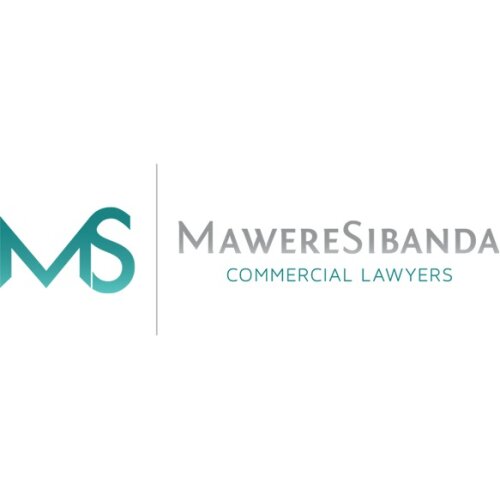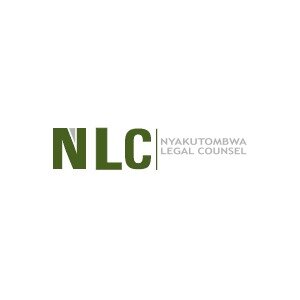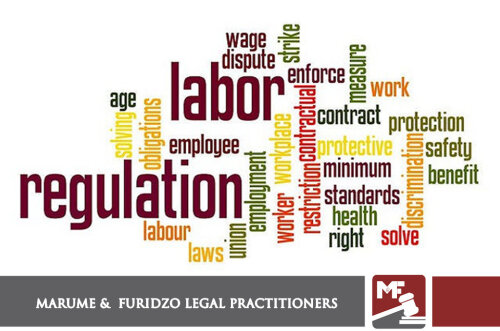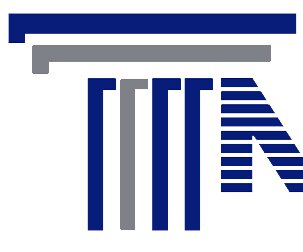Best Commercial Real Estate Lawyers in Harare
Share your needs with us, get contacted by law firms.
Free. Takes 2 min.
Free Guide to Hiring a Real Estate Lawyer
List of the best lawyers in Harare, Zimbabwe
About Commercial Real Estate Law in Harare, Zimbabwe
Commercial real estate law in Harare, Zimbabwe, encompasses a vast array of legal disciplines including sales, purchases, leasing, and development of commercial properties. This field of law is crucial for the seamless operation of the business environment within the city, supporting enterprises ranging from small businesses to multinational corporations. Harare, as Zimbabwe's capital, is the economic hub of the country, making commercial real estate transactions frequent and vital.
The legal framework for commercial real estate in Harare demands consideration of numerous factors such as compliance with zoning laws, environmental regulations, and property rights. Real estate transactions typically require navigating complex agreements and understanding both national regulations and more localized bylaws specific to Harare.
Why You May Need a Lawyer
There are several situations where individuals or companies might find themselves in need of legal advice related to commercial real estate in Harare:
- Purchasing or Selling Property: Lawyers ensure the transaction complies with local laws and can help draft or review contracts to protect your interests.
- Leasing Agreements: Legal guidance is crucial in negotiating terms to suit your business needs and ensuring compliance with statutory obligations.
- Dispute Resolution: Whether it involves breaches of contract or boundary disputes, legal advice can help resolve matters efficiently and effectively.
- Regulatory Compliance: Lawyers can assist with understanding and adhering to zoning laws, building codes, and other relevant regulations.
- Property Development: Legal assistance is often necessary for acquiring permits and navigating bureaucratic processes when developing commercial real estate.
Local Laws Overview
In Harare, commercial real estate transactions are governed by several critical laws and regulations:
- Deeds Registries Act: Governs the registration of property ownership and transactions.
- Regional, Town, and Country Planning Act: Addresses zoning and land-use planning, crucial for development projects.
- Environmental Management Act: Requires compliance with environmental regulations that can impact real estate development.
- Land Tenure Act: Regulates different types of land tenure and ownership rights.
- Commercial Premises Rent Regulations: Governs the leasing of commercial real estate, including tenant rights and landlord obligations.
Frequently Asked Questions
What documents are required for registering a commercial property in Harare?
Typically, you need the title deed, a tax certificate, and a sale agreement, among other documents specified by the Deeds Registry Office.
How does the zoning process work in Harare?
The process involves submitting your proposals to the city planning department, which will review them for compliance with the Regional, Town, and Country Planning Act.
Can foreigners own commercial property in Zimbabwe?
Yes, foreign ownership of commercial property is permitted, although certain restrictions and obligations may apply.
What are the common penalties for violating building regulations?
Penalties can range from fines to orders to halt construction, or demolition, depending on the severity of the violation.
How do lease agreements typically get enforced?
Lease agreements are legally binding contracts and can be enforced through litigation or arbitration if disputes arise.
Are there property taxes for commercial premises in Harare?
Yes, property owners must pay taxes based on the valuation of the property, as determined by local authorities.
Do I need a permit for renovations on a commercial property?
Yes, renovations typically require approval from the city council to ensure compliance with building and zoning regulations.
What is the role of a conveyancer in property transactions?
A conveyancer is a specialized attorney responsible for ensuring the legal transfer of property from seller to buyer, handling deeds registration, and managing related processes.
How are property disputes resolved?
Disputes are often resolved through mediation, arbitration, or court proceedings, depending on the nature of the disagreement.
Is insurance necessary for commercial properties?
While not legally required, insurance is highly recommended to protect against potential risks like fire, theft, and other liabilities.
Additional Resources
Here are some resources and organizations that can be helpful:
- City of Harare Council: Manages local zoning and building regulations.
- Zimbabwe Institute of Regional and Urban Planners: Provides guidance on urban planning and real estate development.
- Environmental Management Agency (EMA): Offers resources for compliance with environmental laws.
- Harare Municipal Property Department: Assists in property valuation and taxation matters.
Next Steps
If you need legal assistance in the field of commercial real estate in Harare, consider the following steps:
- Consult with a licensed real estate attorney or a law firm specializing in commercial property to discuss your needs and circumstances.
- Prepare all necessary documentation related to your case, such as contracts, registration papers, or correspondence related to disputes.
- Visit the relevant governmental offices or legal aid organizations if you require more information or assistance.
- Identify whether your issue might require specialized services such as mediation, arbitration, or litigation, and ensure your legal representation is equipped to handle these proceedings.
Lawzana helps you find the best lawyers and law firms in Harare through a curated and pre-screened list of qualified legal professionals. Our platform offers rankings and detailed profiles of attorneys and law firms, allowing you to compare based on practice areas, including Commercial Real Estate, experience, and client feedback.
Each profile includes a description of the firm's areas of practice, client reviews, team members and partners, year of establishment, spoken languages, office locations, contact information, social media presence, and any published articles or resources. Most firms on our platform speak English and are experienced in both local and international legal matters.
Get a quote from top-rated law firms in Harare, Zimbabwe — quickly, securely, and without unnecessary hassle.
Disclaimer:
The information provided on this page is for general informational purposes only and does not constitute legal advice. While we strive to ensure the accuracy and relevance of the content, legal information may change over time, and interpretations of the law can vary. You should always consult with a qualified legal professional for advice specific to your situation.
We disclaim all liability for actions taken or not taken based on the content of this page. If you believe any information is incorrect or outdated, please contact us, and we will review and update it where appropriate.















